ASEAN must not be ‘passive bystander’ amid global power rivalry, says Malaysia foreign minister
ASEAN members were “meeting at a time when global order is undergoing profound changes”, said Malaysian Foreign Minister Mohamad Hasan at a rare joint meeting on Saturday (Oct 25).
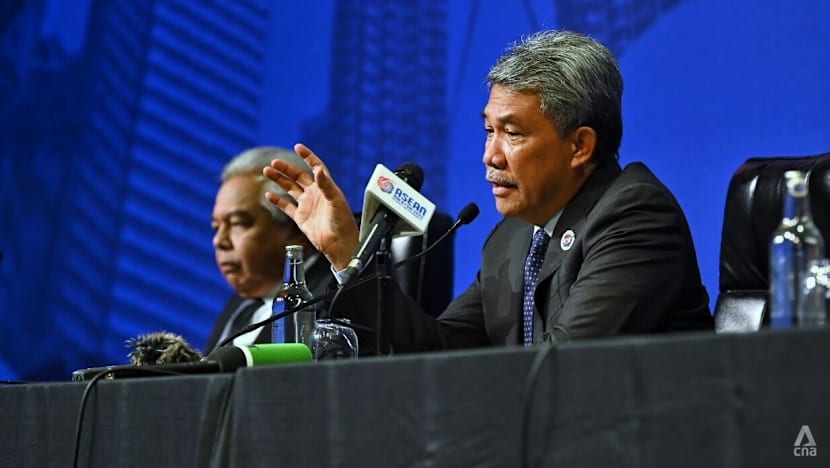
Malaysia’s Minister of Foreign Affairs, Mohamad Hasan, speaks during a press conference in Kuala Lumpur, Malaysia, on Oct 25, 2025. (Photo: CNA/Zamzahuri Abas)

This audio is generated by an AI tool.
KUALA LUMPUR: The Association of Southeast Asian Nations (ASEAN) must not be a passive bystander but a “proactive force for stability, openness and peace” amid rising protectionism and intensifying global power rivalries, Malaysian Foreign Minister Mohamad Hasan said on Saturday (Oct 25) at a rare joint meeting of the bloc’s foreign and economic ministers.
Noting that member nations were “meeting at a time when the global order is undergoing profound changes”, he said these included intensifying great power competition, reconfiguring of supply chains, and “blurring of lines between technology, security, and economics”.
“Our continued relevance will be measured by our ability to engage all partners constructively, while resisting the gravitational pull of rivalry and polarisation,” Mohamad added.
Also speaking at the joint meeting - likely the first in 26 years - was Malaysia’s Minister for Investment, Trade and Industry Tengku Zafrul Abdul Aziz, who said ASEAN must remain steadfast in upholding a rules-based multilateral trading system that underpins global stability and shared prosperity.
“ASEAN should advocate for more focused and high-impact reforms at the WTO (World Trade Organisation) - particularly in areas such as enhancing subsidy transparency, establishing digital trade governance, and restoring trust in dispute settlement mechanisms, to rebuild trust and confidence in global trade rule,” he said.
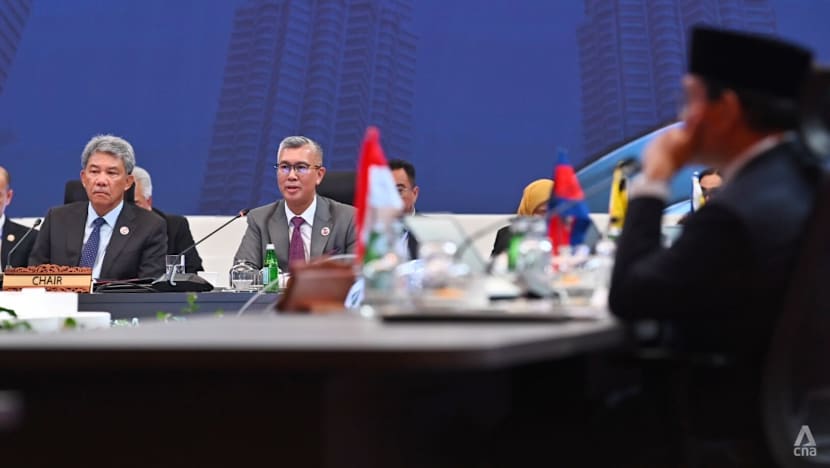
“It is timely for us to strengthen our regional economic security to enhance our ability to anticipate, manage, and respond to emerging risks, across both economic and political spheres,” he added.
He also expressed hope that the ASEAN Geo-Economic Task Force (AGTF), established earlier this year, would offer “clear, practical, and forward-looking recommendations” to guide the bloc's strategic direction.
Saturday’s meeting was attended by ministers and senior officials from ASEAN member states ahead of the leaders’ summit starting Sunday, where global trade, including tariff disputes between the United States and China, is expected to be high on the agenda, given US President Donald Trump’s rare attendance at the twice-yearly meeting.
During his first presidency from 2017 to 2021, Trump made only a single appearance at the annual summit, attending the 2017 meeting in Manila, Philippines. The last US president at an ASEAN summit was Joe Biden, who attended the 2022 meetings in Phnom Penh, Cambodia.
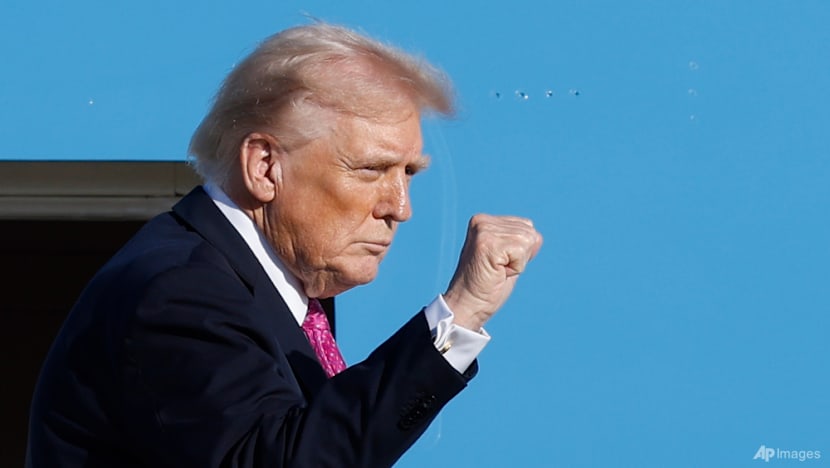
“VERY CONSTRUCTIVE”
Ahead of Trump’s arrival in KL on Sunday and amid the retaliatory tariffs and sanctions between Washington and Beijing, US and Chinese officials met on Saturday in the Malaysian capital for their latest round of trade talks.
Led by US Treasury Secretary Scott Bessent and China's Vice Premier He Lifeng, both sides reportedly held discussions to set the stage for a potential meeting between their respective presidents at the APEC summit in South Korea later this month.
At the Merdeka 118 in downtown Kuala Lumpur, the second tallest building in the world, both sides did not speak to the media gathered at the building. China’s He, a longtime associate of Chinese President Xi Jinping, left at around 6pm, waving to reporters.
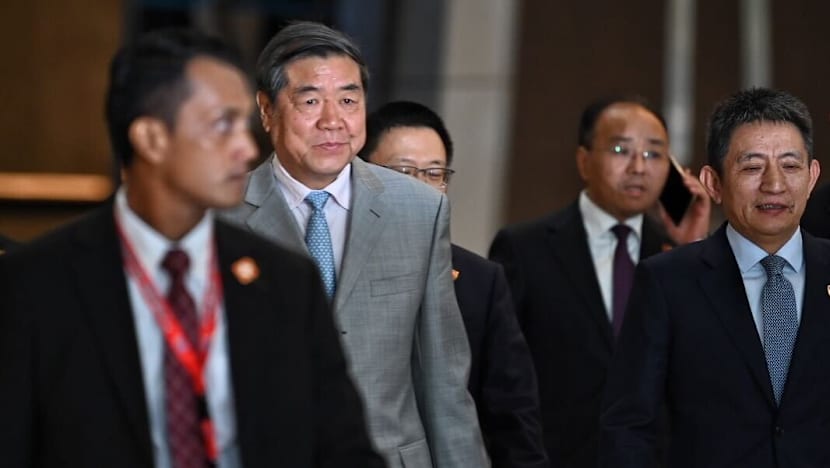
A Reuters report later quoted a US Treasury official in describing the talks as “very constructive”.
On Friday, while aboard Air Force One on his way to Asia where he will also visit Japan and South Korea after Malaysia, Trump reportedly said that he and Xi have "a lot of things to discuss” and expects both sides to make compromises, although he won’t put odds on getting a deal.
"They have to make concessions. I guess we would too. We’re at 157 per cent tariff for them. I don’t think that’s sustainable for them, and they want to get that down, and we want certain things from them,” Trump reportedly said.
Trump has also said he had been invited to visit China early next year and expected to finalise a trade deal with Xi when the two leaders meet.
The meeting in South Korea will be the first between Trump and Xi since the start of Trump’s second term and comes amid renewed friction over tariffs and export controls.
In response to China's announcement of new export controls on rare earth minerals, Trump threatened last week to impose a 100 per cent additional tariff on Chinese imports, resulting in a flare-up of trade tensions between the world's two largest economies.
Trump has set Nov 1 as a possible date for the additional tariff to go into effect. Based on the latest tariff numbers, the US has imposed a 55 per cent levy on Chinese imports, as announced by Trump in June.
Meanwhile, Chinese duties on US imports stand at over 10 per cent, as announced in May.
However, there is still a chance that the numbers could be much larger, threatening trade between both countries.
The US had earlier announced a 145 per cent tax on Chinese goods while the Chinese tariffs on US goods were set to hit 125 per cent, but both countries extended a tariff truce until Nov 10 as discussions continue.
Besides China, the Trump administration has also imposed tariff rates on ASEAN member states, ranging from 10 per cent for Singapore to as high as 40 per cent for Myanmar and Laos.
Rates for Thailand, Malaysia, Philippines, Indonesia and Cambodia currently stand at 19 per cent, 20 per cent for Vietnam and 23 per cent for Brunei.
Analysts told CNA earlier that ASEAN's multi-pronged approach of negotiating for relief and lowering trade barriers has borne fruit.
Not only has Trump cut tariffs on most Southeast Asian countries since Liberation Day, he has kept tariffs on semiconductors and electronics off the table – at least for now.
The respite gives the region a comparative advantage over other countries like China and India and caps downside risks.
DE-ESCALATING EFFORTS
The first joint meeting of the region’s finance, central bank governors, and foreign ministers took place in November 1999, in Manila, Philippines on the eve of the 3rd ASEAN Informal Summit, due to the challenges raised by the Asian financial crisis.
In 2003, the foreign ministers said at their meeting in June that they looked forward to another joint ministerial meeting before the Bali leaders’ summit in October 2003, but there is no record of the 2003 meeting taking place.
Analysts had previously told CNA that the revived meeting this year was a move towards "strategic pragmatism," reflecting ASEAN’s heightened awareness that economic decisions can no longer be divorced from political realities and that they can no longer work in silos.
With a population of around 700 million people, ASEAN is the fifth-largest economy in the world with a combined gross domestic product of US$3.9 trillion.
ASEAN is currently made up of 10 member states, with Timor-Leste to officially become its 11th member state at the summit.
The country took a major step in doing so after officially handing over its membership documents in a ceremony on Saturday morning.
Malaysia’s Mohamad Hasan said the event, known as the Ceremony of Depositing of the Instrument of Accession, effectively marks Timor-Leste’s full admission into the bloc.
“Today, we celebrate you, a nation built on courage, perseverance, and unyielding hope, as you join a family that has long awaited your full inclusion,” he said in his closing remarks after the document handover ceremony.
“Welcome to the ASEAN Family, and to our venerated Charter,” he added.
In his speech, Mohamad also addressed issues facing the region, citing the ongoing crisis in Myanmar, South China Sea tensions and recent deadly border dispute between Thailand and Cambodia.
Myanmar has been in crisis since the military seized power in a coup in early 2021 against the elected government of Aung San Suu Kyi.
Tensions over territorial disputes between China and several ASEAN claimant-states have been brewing with occasional incidents, while Thailand and Cambodia have a ceasefire pact in place since late July brokered by Malaysia with intervention from the US and China. An expanded ceasefire agreement will be signed on Sunday with Trump in attendance.
“As Chair, Malaysia is humbled by the trust placed in us to facilitate these de-escalation efforts, and we remain fully committed to supporting both countries,” he said, referring to ASEAN’s mediation that helped ease the border conflict.
Speaking at a press conference on Saturday evening, Mohamad Hasan said he heard that the US and China were conducting trade discussions in the capital.
"We don't have any expectations but we hope that the US and China will come to their senses ... It's good for the rest of the world," he added.
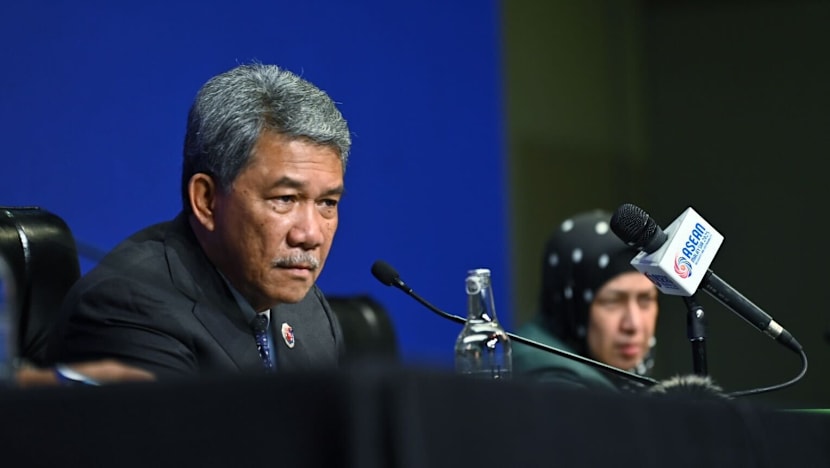
When pressed on Malaysia's ongoing trade talks with the US, the foreign minister expressed hope that Malaysia would be able to conclude discussions positively.
"What we enjoy today is 19 per cent (tax on all goods exported to the US) and 0 per cent on (tax on semiconductor exports), and we want to (maintain) that," said Mohamad.
When asked whether this can be used as guidance for other ASEAN countries, he said he could not speak on behalf of other countries.





















